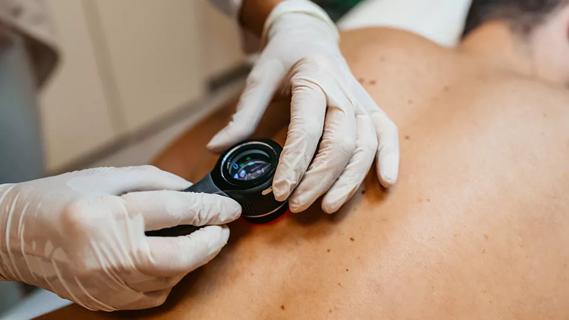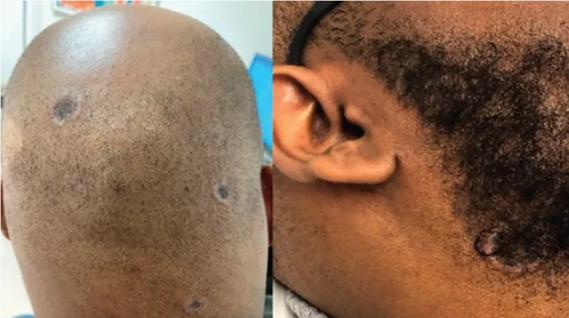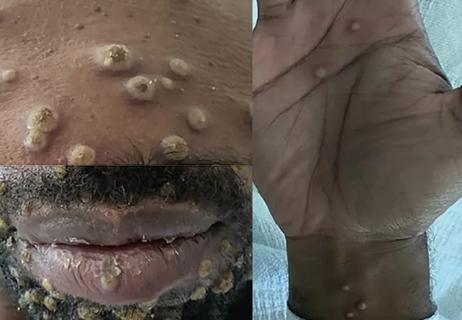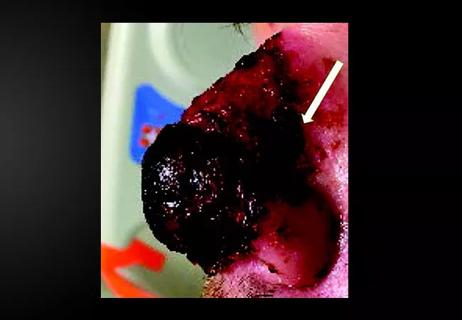Category debug info: client: {"assets":{},"datasets":{},"live":{},"projects":{},"users":{},"observable":{"assets":{},"datasets":{},"live":{},"projects":{},"users":{}}} Now: 1771340510907 Cache Key: cqdDataBySlug:dermatology-plastic-surgery fetchCache[cqdDataBySlug:dermatology-plastic-surgery].expirationTime: falsey fetchCache[cqdDataBySlug:dermatology-plastic-surgery]. seconds remaining: falsey All fetchCache expiration times: -- Key: cqdNotFoundPage, seconds remaining: 1143 -- Key: cqdDataBySlug:improving-access-experience, seconds remaining: -24097 -- Key: cqdPostsByCategory:cqd-migrated-category-22866,1,10, seconds remaining: -23487 -- Key: cqdDataBySlug:cleveland-clinic-registry-study-finds-no-link-between-acei-arb-use-and-covid-19-risk, seconds remaining: -23774 -- Key: cqdDataBySlug:new-community-support-program-helps-prepare-patients-for-discharge, seconds remaining: -21737 -- Key: cqdDataBySlug:leading-with-purpose-a-look-at-cleveland-clinics-leadership-retreat, seconds remaining: -20508 -- Key: cqdDataBySlug:novel-tool-assesses-dynamic-neurocognitive-adaptation-across-a-lifetime, seconds remaining: -19970 -- Key: cqdDataBySlug:genetics-the-cause-and-a-cause-for-hope-in-huntingtons-disease-podcast, seconds remaining: -16004 -- Key: cqdDataBySlug:photo-essay-support-services-at-cleveland-clinic, seconds remaining: -14991 -- Key: cqdDataBySlug:essentials-of-revision-spine-deformity-surgery-podcast, seconds remaining: -11209 -- Key: cqdDataBySlug:patient-support, seconds remaining: -10653 -- Key: cqdPostsByCategory:cqd-migrated-category-2549,1,10, seconds remaining: -9977 -- Key: cqdDataBySlug:minding-the-patient-experience-podcast, seconds remaining: -8888 -- Key: cqdDataBySlug:advancing-patient-care-behavioral-health-2, seconds remaining: -5611 -- Key: cqdPostsByCategory:cqd-migrated-category-22886,1,10, seconds remaining: -4811 -- Key: cqdDataBySlug:caregiver-office, seconds remaining: -2245 -- Key: cqdPostsByCategory:cqd-migrated-category-23491,2,10, seconds remaining: -2214 -- Key: cqdDataBySlug:minimally-invasive-gynecologic-surgery, seconds remaining: 1143 -- Key: cqdPostsByCategory:cqd-migrated-category-22741,1,10, seconds remaining: 1882 -- Key: cqdDataBySlug:mash-cirrhosis-and-obesity-transforming-care-with-shared-medical-appointments, seconds remaining: 1740 -- Key: cqdDataBySlug:patient-care-management-digestive, seconds remaining: 3346 -- Key: cqdPostsByCategory:cqd-migrated-category-2577,1,10, seconds remaining: 4205 -- Key: cqdDataBySlug:charting-a-new-frontier-cleveland-clinics-first-fully-robotic-liver-transplant, seconds remaining: 4271 -- Key: cqdDataBySlug:innovation-transplant, seconds remaining: 8029 -- Key: cqdPostsByCategory:cqd-migrated-category-2641,1,10, seconds remaining: 8640 conditions: -- false, -- NA, -- NA, -- NA -- false Cache miss for key cqdDataBySlug:dermatology-plastic-surgery - retrieving from Sanity CCCache.dataFetchCount: 1117 Cache cleanup seconds remaining: 3996
Advertisement
Advertisement
Dermatology & Plastic Surgery
Benefits of neoadjuvant immunotherapy reflect emerging standard of care
Early detection, prognostication and intervention may improve outcomes
Multidisciplinary perspectives on the importance of early referral and more
For patients with headache, pulsatile tinnitus or vision changes, immediately stop use and refer to ophthalmology
Advertisement
Cleveland Clinic is a non-profit academic medical center. Advertising on our site helps support our mission. We do not endorse non-Cleveland Clinic products or services. Policy
Family history may eclipse sun exposure in some cases
Consider secondary syphilis in the differential of annular lesions
Persistent rectal pain leads to diffuse pustules
Two cases — both tremendously different in their level of complexity — illustrate the core principles of nasal reconstruction
Unique skin changes can occur after infection or vaccine
Stress and immunosuppression can trigger reactivation of latent virus
Rendered: Tue Feb 17 2026 15:01:51 GMT+0000 (Coordinated Universal Time)
9500 Euclid Avenue, Cleveland, Ohio 44195 |
800.223.2273 | ©
2026 Cleveland Clinic. All Rights Reserved.









